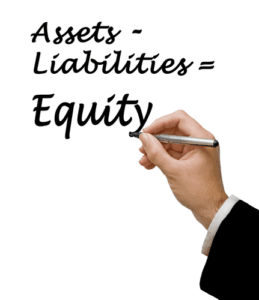
As the role of accountants evolves, so does their responsibility to act as ethical stewards within organizations. They must advocate for ethical decision-making and transparency, particularly in areas prone to conflicts of interest or financial manipulation. The future of accountancy will depend significantly on the profession’s ability to uphold these ethical principles amidst changing landscapes. Incorporating sustainability and ethical principles into accounting will not only enhance the credibility of financial reports but also drive long-term value creation. double declining balance depreciation method Companies that prioritize these aspects are expected to gain a competitive edge by attracting socially conscious investors and customers.
Challenge 2: Future-Ready Leadership – A Learning & Development Roadmap for AI in Auditing
This will involve adopting advanced encryption methods, ensuring compliance with data protection regulations, and implementing multi-factor authentication for access to financial systems. Online bookkeeping services will need to prioritize data security to maintain the trust of their clients and protect sensitive information from potential threats. Instead, bookkeeping services will evolve, and bookkeepers will take on more strategic roles. They will need to become more involved in analyzing financial data, offering business insights, and providing personalized advice to business owners. It’s important to be attentive to industry trends and proactive in adopting new technologies, ensuring cybersecurity, considering new business models, and staying ahead of regulatory changes. These advancements create new challenges and opportunities for accounting and finance professionals, transforming their roles from reactive tasks to proactive analysis.
Key Skills Will Need in the Future of Accounting Careers

Dedicated to helping CPAs stay ahead in a fast-paced industry, it provides comprehensive software reviews, thought leadership articles, and educational content through webinars and podcasts. This trend underscores the profession’s growing reliance on digital tools and platforms to manage day-to-day tasks, improve efficiency, and enhance accuracy. Traditionally, accounting firms focused on https://www.bookstime.com/ tasks like preparing tax returns or financial reports. While these services are still important, there’s a growing demand for advisory services.
The Future of Bookkeeping in the Digital Age
In NYC, where businesses often search for “book keeping services near me,” this hybrid approach provides the best of both worlds, catering to diverse client preferences. Bookkeepers who embrace this shift — toward specialization, insight, and collaboration — will not only stay relevant but become indispensable partners to growing businesses. More businesses are turning to freelance, part-time, or virtual bookkeepers, especially in the US and UK, where cost efficiency and flexibility are top priorities. As automation takes care of compliance, the demand for financial insight, forecasting, and cash flow planning is skyrocketing.

If you use technology services for HR, storage, or otherwise, check that their security protocols are in line with your needs. Swipeclock uses is bookkeeping in demand state-of-the-art security, keeping all of your workforce’s data safe. If your firm hasn’t already done so, it should be focusing on strengthening cybersecurity in 2025.
- However, transitioning to an interconnected solution will remain a challenge without the CFO’s support and encouragement.
- Blockchain technology is another game-changer, promising enhanced transparency and security in financial transactions.
- Technological trends in automation, AI, blockchain, cloud computing and data analytics will keep changing the way accountants work strategically.
- AI-driven predictive analytics enables more precise budgeting and risk management, reducing uncertainties.
- In 2021, Deloitte reported that accounting firms implementing AI and robotic process automation (RPA) improved efficiency by up to 40%.
Financial Reporting

Canopy’s firm-wide operating system provides a modern, cloud-based platform that brings live updates to your systems when needed. With a customizable suite entirely based on the needs of your firm, Canopy unlocks the path to success through industry-leading practice management software. Thirty-seven percent of respondents expect to spend more time with clients over the next three years, with 9% anticipating a significant increase. Despite this strong focus on security, 15% of respondents have experienced a security breach, illustrating that vulnerabilities still exist.
The Quiet Edge: Why Small Teams Are Beating Giants in 2025
- Advanced analytics is changing the professional dynamic for the better, with improved decision-making and strategic planning.
- Real-time reporting allows organizations to monitor their compliance status continuously.
- Blockchain offers secure, transparent, and immutable records, simplifying audits and improving transaction tracking.
- This transformation allows accountants to focus more on strategic decision-making and less on mundane activities, thereby increasing overall efficiency and accuracy.
- Client-facing roles need professionals who maintain confidentiality, answer phones, schedule meetings, and run office operations smoothly.
It enables real-time financial analysis and forecasting, enhancing overall efficiency and effectiveness. Artificial Intelligence is reshaping the accounting landscape with its potential to automate tasks, enhance data analysis, and improve accuracy. These tools offer new efficiencies but also introduce challenges that accounting firms must navigate. Bank reconciliation benefits significantly from automation, providing accuracy and speed. Automated systems match transactions from bank statements with the firm’s ledger, minimizing human errors.

More than ever, accountants control their own narrative
The ongoing digital transformation of the bookkeeping industry is powered by groundbreaking advancements in automation and artificial intelligence (AI). These innovations are revolutionizing how financial data is managed, analyzed, and leveraged. While still in its nascent stages, blockchain technology holds immense potential for transforming bookkeeping and accounting practices. Blockchain offers a decentralized, transparent, and immutable ledger system that enhances security and trust in financial transactions. The first wave of change was brought about by artificial intelligence and automation.
- In my experience, clients who view their accountants as partners in strategy often unlock new opportunities for profitability and innovation.
- CPAs should also consider earning advanced degrees or certifications in fields including data analytics, cybersecurity, or forensic accounting.
- Automation requires knowledge of data mining and other data science techniques.
- Advanced data analysis helps accountants to interpret complex datasets accurately, identifying opportunities and potential challenges promptly.
- While online bookkeeping is on the rise, some businesses still value the personal touch of in-person interactions.
Accountants who possess sharp data analysis skills will, therefore, have the ability to provide even deeper insights to their clients. These insights will form the basis of better decision-making and long-term planning. In this article, we delve into major trends for accounting in 2024 and beyond. We’ll consider how changes in automation, data analytics, blockchain, and other new technologies will reshape the accounting landscape.
Technological Integration and AI Tools
AI systems enhance security by monitoring for anomalies or unauthorized access attempts. Utilizing machine learning mechanisms, these systems can recognize patterns indicative of potential threats, alerting firms to take proactive steps. Thus, AI not only processes data but also plays a crucial role in maintaining its security. Accounting firms handle vast amounts of sensitive financial data, necessitating robust data privacy measures.

